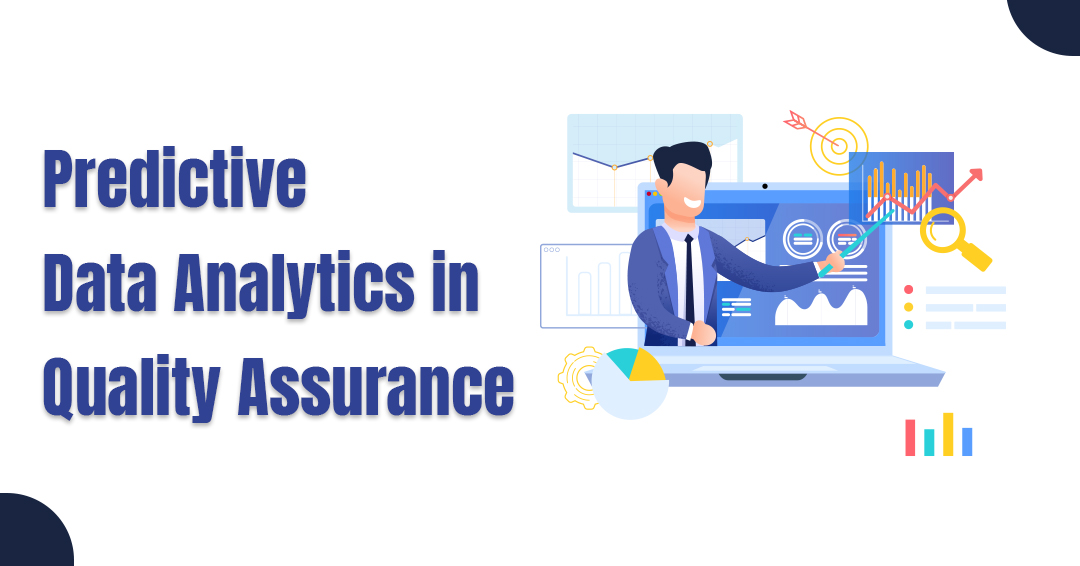Have you ever thought about how AI might transform the financial industry? By 2027, the AI market in finance is projected to reach an impressive $130 billion. This raises significant questions about the implications and importance of AI in financial services. Finance has always been centered upon data analysis to forecast risks and returns. However, the sheer volume of data in today’s digital landscape limits human analytical capabilities. This is where AI comes into play, adept at sifting through vast amounts of financial data to uncover valuable insights.
AI is revolutionizing the finance industry in multiple ways, from automating routine tasks to identifying intricate patterns. It can analyze millions of data points, documents, and news articles, generating insights that far exceed human capabilities. By utilizing dedicated resources, financial institutions can effectively implement AI solutions to drive innovation and enhance their services.
However, the impact of AI in financial services extends beyond profitability. When applied ethically, artificial intelligence in finance can broaden access to credit and financial tools. In an increasingly complex world, AI may provide improved fiscal management solutions, benefiting everyone from major financial institutions to community banks and individual budgets.
In this blog post, we will take a closer look at the key use cases and applications of AI in the financial sector.
Understanding AI in Finance
Artificial intelligence (AI) in finance encompasses the use of advanced technologies, particularly machine learning algorithms, to enhance operations within the financial sector. This fintech innovation enables financial services firms to boost efficiency, accuracy, and speed across various functions, including data analytics, forecasting, investment management, risk assessment, fraud detection, and customer service. By automating traditionally manual banking processes, AI is modernizing the industry, facilitating a deeper understanding of financial markets, and creating customer engagement strategies that simulate human interaction.
AI is transforming the financial sector, enabling institutions to operate with unprecedented speed and precision. AI-driven models execute trades using real-time market data, enhancing investment decisions and risk management. By analyzing transaction patterns, AI improves security, fraud detection, AML, KYC, and compliance. It also personalizes customer interactions, predicts behavior, and refines credit scoring, leading to innovative products and services. Overall, AI in financial services ushers in a new era of data-driven decision-making, efficiency, security, and customer experience.
Key Advantages of AI in Finance
The integration of AI in finance offers numerous benefits, from improving decision-making accuracy to driving sustained growth. AI is a transformative force reshaping the industry landscape. Here are its key advantages in the FinTech industry.
Operational Efficiency
By automating tedious tasks like data input and document processing, artificial intelligence (AI) in finance streamlines operations. By reducing the possibility of human error, automation ensures the accuracy and integrity of data. Since AI eliminates the need for manual labor, financial institutions can repurpose their human capital for strategically vital tasks, freeing up resources.
Enhanced Customer Experience
NLP-driven chatbots and virtual assistants are examples of AI technology that enables customized consumer interactions. Chatbots provide round-the-clock support by promptly and efficiently answering questions. AI may evaluate data to offer personalized financial recommendations and guidance based on users’ preferences and areas of interest, enhancing their overall experience.
Competitive Edge
Financial institutions can now gain crucial insights into risk factors, market trends, and customer behavior by using machine learning algorithms. FinTech companies can make wise judgments more quickly than they can with traditional methods because of AI’s quick analysis of massive volumes of data. Organizations can gain a competitive edge by quickly adapting to shifting market conditions by means of AI-driven analytics.
Accurate Models
Artificial intelligence (AI) systems are very good at interpreting complex datasets and generating accurate predictions for investing strategies, risk assessment, and fraud detection. In the financial industry, artificial intelligence enhances decision-making by identifying patterns and trends that human analysts would ignore. Financial institutions can effectively control risks, detect fraudulent activities more precisely, and optimize investment portfolios with more accurate models.
Speed and Accuracy
Large volumes of data are quickly processed by AI, which also finds patterns and linkages that are often overlooked by human study. Faster insights that are essential for trading, risk assessment, compliance, and other financial processes are made possible by this capability, which eventually improves industry efficiency and agility. AI’s speed makes it possible to react to changing market conditions and financial landscapes in real-time, enhancing responsiveness and enabling institutions to stay ahead of the curve as well as precisely and quickly seize new possibilities.
Top 9 Use Cases of AI in Finance
Here are the top 10 applications of AI in financial services.
1. Customer Service
AI is revolutionizing customer service in finance through advanced tools like conversational AI, voice assistants, and sentiment analysis. AI-powered chatbots and virtual assistants handle large volumes of queries efficiently, utilizing natural language processing to deliver accurate responses. Voice assistants, integrated into mobile banking apps or smart devices, enable customers to manage their accounts and access financial insights through voice commands.
Additionally, AI algorithms for sentiment analysis provide valuable insights from customer feedback and social media, helping financial institutions address concerns and enhance service quality. Together, these AI applications are transforming customer service by offering personalized and efficient support in the finance sector.
2. Fraud Detection
The latest AI solutions are enhancing fraud detection in finance by leveraging machine learning and predictive analytics. AI systems analyze large data sets in real time to identify and prevent fraudulent activities, adapting to new data and detecting emerging fraud patterns that traditional systems might miss. Anomaly detection algorithms highlight unusual behavior, triggering alerts for investigation. By integrating diverse data sources, including social media and external databases, and utilizing natural language processing (NLP), AI enhances the ability to detect and prevent fraud accurately.
3. Risk Assessment
AI has transformed credit risk assessment in finance by enhancing accuracy and efficiency through advanced solutions. Traditional methods, which relied on manual evaluation and subjective judgment, have been replaced by AI-driven models. Machine learning algorithms and predictive analytics now analyze extensive data—such as credit history, financial statements, and market trends—to assess credit risk.
Additionally, AI facilitates real-time monitoring of credit risk, providing early warnings about potential defaults or declining creditworthiness.
4. Personalized Wealth Management
AI is transforming finance through advanced algorithms and machine learning, particularly in personalized wealth management. By analyzing extensive data, including market trends and historical performance, AI delivers tailored investment advice based on individual preferences, risk tolerance, and financial goals. This integration of AI enables financial institutions to offer customized strategies and innovative solutions, enhancing customer experiences and service quality. AI’s role in finance is driving innovation and transforming how institutions operate, leading to superior financial services and outcomes.
5. Compliance
Compliance is crucial in the financial industry, and AI is transforming this area with its advanced capabilities. AI enhances compliance processes by automating tasks such as Know Your Customer (KYC) procedures, where machine learning algorithms analyze data, identify risks, and flag suspicious activities. This automation not only streamlines verification but also saves time, reduces costs, and ensures adherence to regulatory standards. In banking and finance, AI-driven efficiency improvements can be supported by IT consulting firms, offering cutting-edge solutions to optimize performance and compliance.
6. Planning
AI is revolutionizing financial planning through advanced data analytics and machine learning. AI-powered platforms analyze historical data, market trends, and economic indicators to produce accurate, personalized forecasts, appealing particularly to millennial customers. A key example is AI-driven robo-advisors, which offer cost-effective, real-time investment advice based on individual goals and risk tolerance.
Additionally, conversational AI enables users to interact with virtual assistants for financial planning, providing personalized support, and executing transactions. This technology is set to significantly transform how financial planning is conducted.
7. Prediction and Management of Bad Debt
AI is transforming the forecasting and management of bad debt in financial services. Machine Learning (ML) algorithms analyze historical data, including payment patterns and credit scores, to predict default risks, enabling data-driven decisions to mitigate bad debt. Generative AI models simulate various economic scenarios to assess their impact on loan portfolios and adjust strategies accordingly.
In addition to that, AI-powered systems automate debt collection by personalizing efforts based on customer behavior and demographics, improving debt recovery rates and resource optimization. Overall, AI enhances bad debt management through better predictions, strategic adjustments, and efficient debt collection.
8. Financial Report Generation
AI is increasingly pivotal in generating financial reports by automating the analysis of vast amounts of data, including transactions, invoices, and account statements. AI-powered systems utilize machine learning algorithms to extract relevant information, validate data, and produce comprehensive, error-free reports.
AI also enhances regulatory reporting by automating data extraction, calculations, and compliance with regulations. AI also enables real-time financial reporting, providing up-to-date information for better decision-making. Overall, AI is revolutionizing financial reporting by improving data processing and analysis.
9. Algorithmic Trading
Algorithmic trading exemplifies AI’s impact on finance, offering faster, more accurate, and data-driven decision-making. AI algorithms analyze extensive market data, including historical trends, indicators, and news sentiment, to predict market movements and execute trades with precision. Additionally, conversational AI enhances algorithmic trading by allowing virtual assistants to process queries, provide market insights, and manage trades based on predefined criteria. AI and machine learning enable trading systems to continuously learn and adapt, optimizing strategies and maximizing returns.
Challenges of AI in Finance & Strategies for Success
Integrating AI into finance presents various challenges, such as ensuring data quality and addressing interpretability issues. Nonetheless, there are effective solutions to these obstacles. Let’s explore the key challenges and their corresponding solutions in AI integration within FinTech.
Interpretability and Explainability
As AI models sometimes act as “black boxes,” it can be challenging to comprehend what they decide and provide an explanation for the outcomes, which is crucial in regulated financial situations. Use interpretable AI techniques, such as explainable machine learning algorithms and model-agnostic interpretability methodologies, to increase transparency and confidence in AI systems.
Ethical and Regulatory Compliance
Due to ethical and legal compliance requirements, as well as fairness, accountability, and transparency, using AI in finance may be complicated. Prioritize ethical AI principles across the AI development lifecycle, establish robust governance frameworks, and put in place compliance monitoring tools.
Data Quality and Availability
As several data sources and discrepancies exist, it might be difficult to guarantee data availability and quality for AI model training. To improve data quality and availability, put in place procedures for data quality, make use of tools for data integration, and make use of alternative data sources.
Cyberattacks
Data security and integrity may be threatened by malicious manipulations and cyberattacks directed towards AI systems in the financial sector. To lessen the risk of cyberattacks and safeguard sensitive financial data, put in place robust cybersecurity measures including encryption, authentication processes, and continual monitoring.
Integrating to Legacy Systems
It can be difficult and costly to integrate AI technology with the legacy systems and infrastructure that financial institutions now have in place. Employ scalable and modular AI architectures, middleware, and APIs to facilitate seamless integration, and gradually transition to AI-enabled systems while preserving backward compatibility with existing systems.
AI in Financial Services: A Glimpse into Tomorrow
The future of AI in financial services promises significant potential for transformative innovation. As AI technologies continue to evolve, financial institutions are increasingly adopting AI-driven solutions to enhance customer experiences, offer personalized wealth management, and improve risk assessment accuracy.
AI algorithms will streamline operations, automate routine tasks, and optimize decision-making processes, thereby boosting efficiency and profitability. Additionally, AI-powered predictive analytics will facilitate proactive risk management and uncover new business opportunities. With ongoing advancements in AI capabilities, the financial services industry is set to experience a paradigm shift, fundamentally changing how financial institutions operate, engage with customers, and deliver value in the digital era.
Leverage the Power of AI in Finance with Us!
A trusted partner in leveraging the latest AI trends in finance can unlock transformative potential for financial operations. A software development company with expertise in AI development services and a deep understanding of the finance industry can develop AI-powered solutions tailored to specific needs, such as automating routine tasks, enhancing fraud detection, or optimizing investment strategies. By choosing to hire dedicated resources, financial institutions can ensure focused expertise and efficient project execution.
Through a collaborative approach and cutting-edge AI solutions, financial institutions can stay ahead in the dynamic landscape of finance and harness the full power of AI to drive growth and efficiency. Have any queries? Feel free to contact us!









